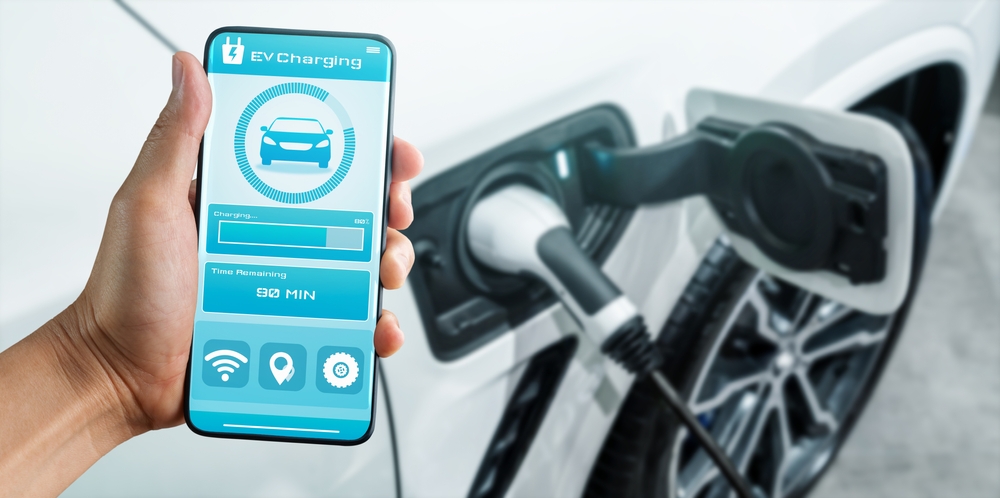Thinking of making the transition to electric vehicles with your fleet? It’s a complex process with a lot of things to consider! We’ve put together this post to help you with switching to electric vehicles.
Why should you switch to electric vehicles?
With the approaching EU-wide deadlines for reducing fleet emissions in 2025 and 2030, making the switch to electric vehicles in the next few years is a smart choice for fleets looking to avoid hefty financial sanctions. Additionally, as we’ve previously explored on our blog, EVs are far more economical to run vs petrol and diesel vehicles, which in the current climate makes them the most affordable way for fleets (especially larger ones) to operate.
In short then, there are both immediate and near-future reasons to consider switching to electric vehicles. The real question is therefore not should you consider it, but how should you go about it?
What to consider when switching to an electric fleet
1. Your current fleet portfolio and how quickly you need to transition to electric vehicles
First take some time to look at your fleet operations and finances, with one eye on what your ideal EV fleet makeup would be. You’ll then have a starting point for switching to electric vehicles and everything that comes with it. Think about things like your average daily mileage; the kinds of distances your vehicles travel; your current power supply and whether it might need upgrading; and the appetite for the switch to EV charging amongst your drivers and management team.
2. Taking your team through the change curve
The next step in moving your fleet to an all-electric future is to get buy-in from the people who matter most.
You might think that would be your management team, but we find the financial realities of fuel costs and EU sanctions make that easier than it might have been even 12-18 months ago.
In reality, the people it will affect the most day-in-day-out are your drivers. They’re the ones who’ll be driving a different kind of vehicle and refuelling in a totally different way. Engage them early on in the process to get their feedback on how to go about switching to electric vehicles – not if you should. Give them an idea of how it will work, and show them you’ve done the thinking that can quell any charging concerns or range anxiety they may feel.
3. The many regulations and incentives on offer for switching to electric vehicles
 From a legal angle making such a massive switch in your business operations needs to be done in the most compliant way possible. The EU’s fleet-wide emissions targets for 2025 and 2030 will give you targets to aim for in terms of your fleet’s carbon footprint. Meanwhile, the UK government’s recent decision to abandon the car plug-in grant while pledging £300m more to electric vans, trucks and taxis (amongst other car alternatives) means that while individual motorists may not have an additional incentive to go electric, businesses definitely do.
From a legal angle making such a massive switch in your business operations needs to be done in the most compliant way possible. The EU’s fleet-wide emissions targets for 2025 and 2030 will give you targets to aim for in terms of your fleet’s carbon footprint. Meanwhile, the UK government’s recent decision to abandon the car plug-in grant while pledging £300m more to electric vans, trucks and taxis (amongst other car alternatives) means that while individual motorists may not have an additional incentive to go electric, businesses definitely do.
4. Total cost of ownership (TCO)
TCO isn’t just for fleets that own their own vehicles – it’s very much about the scale and scope of the finances across the entire project. So whether you own or lease your fleet assets, you’ll want to factor in those costs alongside those attributed to your charging network, fuel, maintenance, and any funding you might receive to help with the transition to electric vehicles.
5. Where you need to start with EVs, and what you might need in future
This is the point at which you may want to talk to a company with expertise in transitioning to electric vehicles, since there are plenty of choices you’ll want to make with their guidance and support. Those could include:
- Changes to your policies, procedures and service level agreements with clients
- Power needs and installation of your charging infrastructure, plus where it may need to expand to over time
- Health and safety concerns and operational support for your drivers and other staff
- Plus procuring the needed hardware and software to make the venture a success (more on that in point seven below).
6. The project’s practical needs and timelines
If step five is looking at the bigger picture in your transition to electric vehicles, step six is about digging down into the details. Here, you’ll start making decisions around the wording of your EV policies, the funding arrangements you’ll need to make, the specific site you’ll want to build on (if your current site isn’t suitable), plus things like acquiring planning permission, and all of the associated logistical concerns that will need to go into making the venture a reality.
7. The hardware and software you’ll need to get the most from the transition to electric vehicles

Stage seven of the great switch to electric vehicles is all about implementing the tools you’ll need to manage your EV infrastructure. That includes rolling out the fleet software that will help you make the most out of your new EVs and charge points, including a facility for drivers to be able to log in and pay for charging stops via a company app, without needing to dip into their own pocket. The right software will also help you monitor how your vehicles are running and optimise them in all areas for maximum efficiency.
8. Who will your leasing and energy partners be?
From software and hardware to planning, regulations, installation, maintenance and day-to-day operations, moving your fleet to an all-electric future requires a lot of power – particularly if you have a sizeable business fleet. We’d suggest picking both a leasing provider and energy company who understand the challenges you’ll face and can together help you navigate the unexpected.
9. How will you scale your site’s energy needs?
Once you have the right support from the right people, scaling your EV strategy for increased energy consumption as your business grows should be something you’re well equipped to do. Additionally, you may want to consider installing ways to create your own energy, such as solar panels – which will help your business become even more sustainable as you make the switch to electric vehicles for the long term.
Thinking of going electric? We can help
At GKL Electric we’re experts at helping businesses with moving their fleet to an all-electric future.
Check out our advice and support pages for a quick primer or get in touch to discuss your fleet’s needs.







